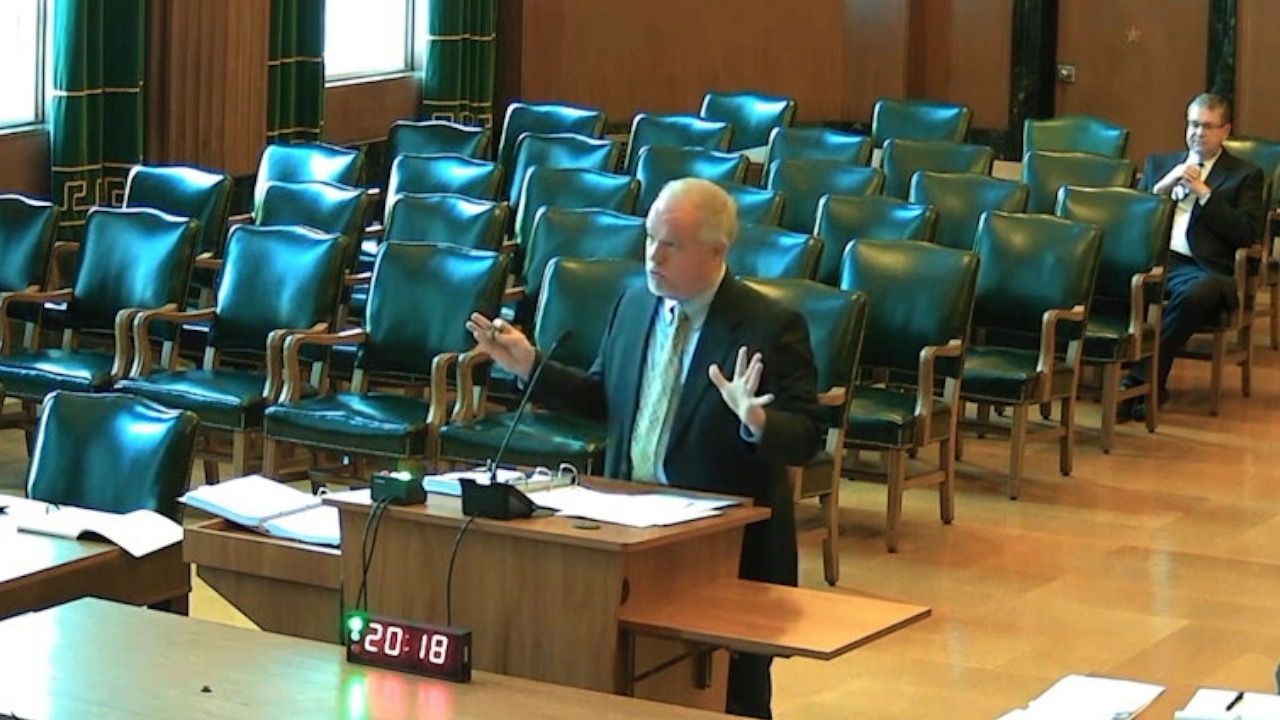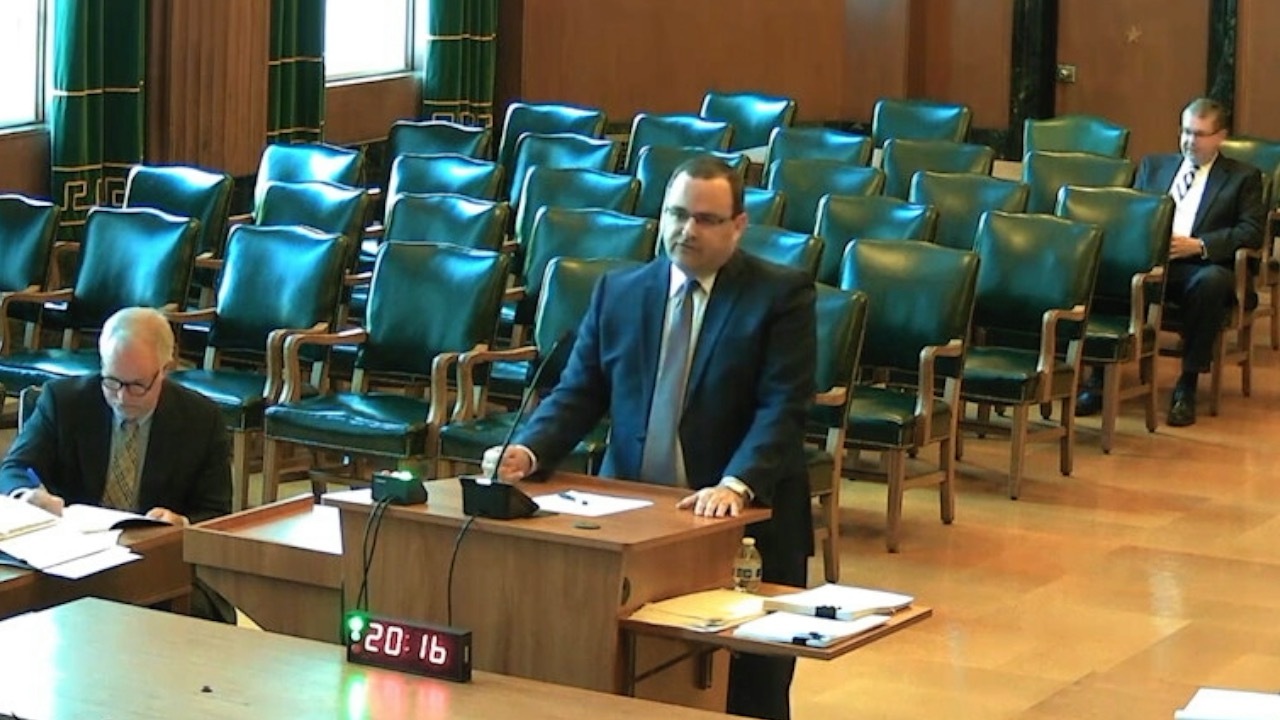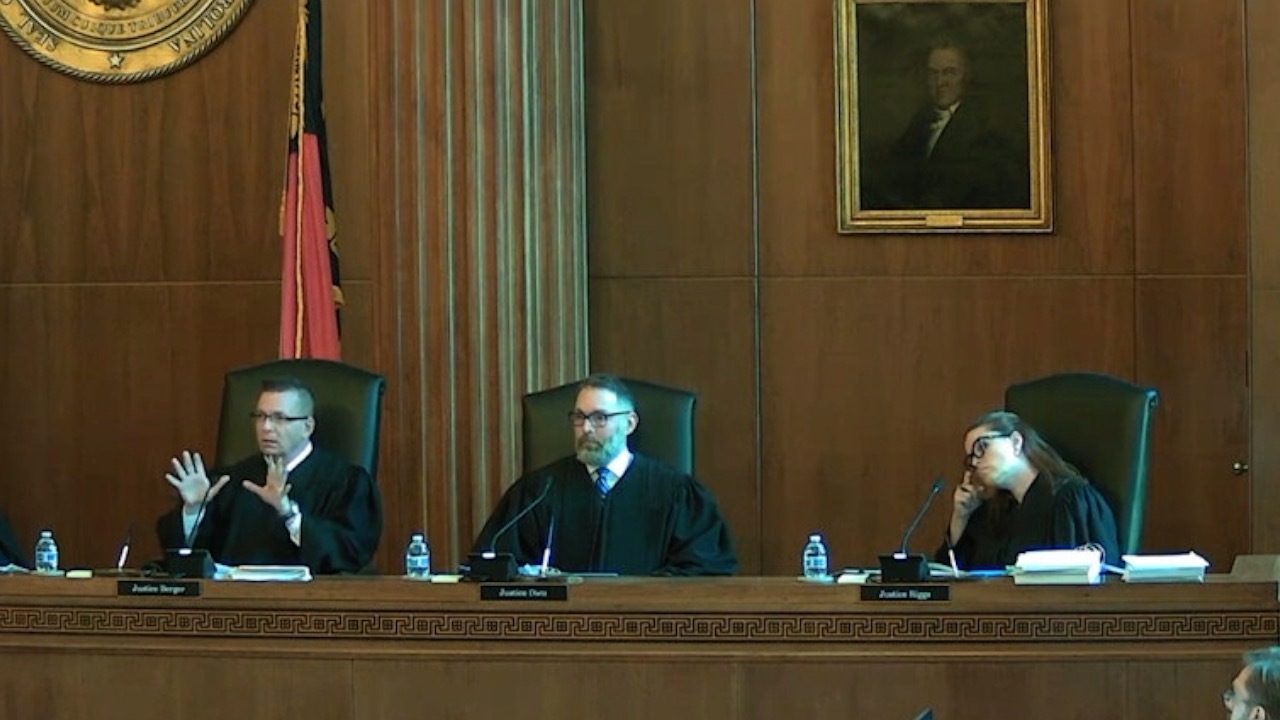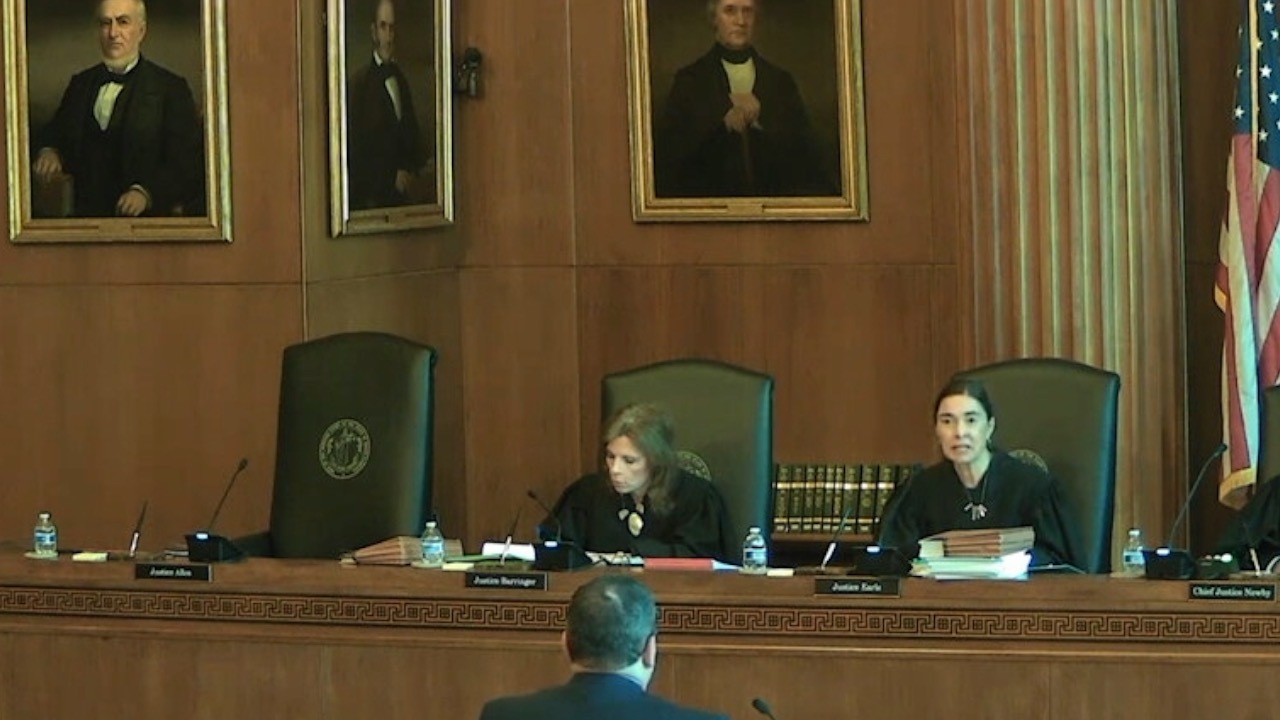- The state Supreme Court will decide in the months ahead whether the family of a man who suffered a violation of his speedy-trial constitutional right can seek money damages against the state.
- Frankie Washington was arrested in Durham in 2002, went to trial in 2007, and had his convictions thrown out by the state Court of Appeals in 2008.
- Washington died last year, but his family continues to pursue money damages. Washington's lawyer argues that former Durham prosecutor Tracey Cline knew Washington was innocent but pursued a criminal case against him anyway.
More than 20 years after Frankie Washington was arrested in connection with a Durham home invasion, 15 years after the state Appeals Court threw out his conviction, and a year after his death, the state Supreme Court is debating whether Washington’s family could collect money from the government.
The lawyer for Washington’s estate argued before the high court Wednesday that the Appeals Court’s 2008 decision to throw out Washington’s convictions on burglary, kidnapping, robbery, and sex offense charges did not go far enough. The Appeals Court ruled that prosecutors had violated Washington’s constitutional right to a speedy trial by waiting five years to bring his case to court in 2007.
Attorney Robert Ekstrand argued that prosecutor Tracey Cline hid evidence that would have cleared Washington’s name. Cline later lost her job as Durham’s district attorney in 2012. A judge ordered her removed from office for prosecutorial misconduct because she accused a different judge of bias and corruption.
“Mr. Washington was innocent, and the prosecutor knew it,” Ekstrand argued.
“This was a catastrophe,” he added. “My client was an auto mechanic. He struggled with drugs. … He was a productive citizen. He had a son that he cared a great deal about. He was arrested, held on $1 million bond, and lost really everything throughout the five years that it took to get to trial.”

Special Deputy Attorney Joseph Finarelli of the NC Department of Justice countered that the decision to vacate Washington’s convictions and to dismiss all charges against him addressed the speedy trial concerns.
“A unique right deserves a unique remedy,” Finarelli argued. “Such a remedy, vacatur of a criminal conviction or dismissal of the charges, already accompanies a violation of the defendant’s speedy trial right — regardless of the defendant’s guilt or innocence.”
“Given the consequential and intrusive nature of that remedy, … this court should decline to recognize a civil cause of action for money damages against the state under Article I, Section 18 of our constitution,” Finarelli added.

Six of the seven state Supreme Court justices heard the arguments, with Justice Trey Allen recused from the case.
At least two justices questioned the prospect of awarding money damages.
“There’s no right to bring the direct state constitutional claim in our state court unless you can make that showing that there’s no other place that you can go, no other way to raise the claim and be afforded the remedy,” said Justice Richard Dietz. “The thing is here you can raise it in your criminal proceeding, and you know you’ll never be convicted.”
“What I’m looking for is something in our state law doctrine that would say that’s not an adequate remedy when it seems to be very adequate,” Dietz added. “It’s an extremely aggressive remedy. It means that even if you committed a very serious crime, you won’t be held accountable.”
Justice Phil Berger Jr. cited a state precedent in the 1992 case Corum v University of North Carolina. It says in the absence of an adequate state remedy, a person whose constitutional rights have been violated can pursue a direct claim against the state and its officials.
“Certainly, Corum allows, potentially, damages as a remedy,” Berger said. “But Corum also says that where the common law supplies a remedy, we bow to those established remedies. Why is or why is not the dismissal for the violation not a common law remedy that’s clearly established that we should, in the words of Corum, bow to?”

On the other side of the argument, the court’s two Democratic justices both asked questions suggesting an openness to support for money damages.
“The argument here is that dismissal of the charges is not adequate because it doesn’t compensate him for the ways that he suffered,” said Justice Anita Earls. “How can we possibly say that here the dismissal of the charges is perfectly adequate when it doesn’t begin to compensate him, at least as alleged at this stage, … Mr. Washington for all the ways in which he suffered?”

Justice Allison Riggs asked why Washington’s heirs would not be able to seek compensation for losses he suffered while he awaited trial. She suggested court proceedings might show that his trial had been delayed unconstitutionally for a set period of time, such as three years.
“I don’t see how vacating the conviction gets to that three years, if that is indeed the proof, and why then we are taking away a potential cause of action,” she said. “If that’s the proof, the vacation of the conviction does not address those three years of lost wages, right?”
There is no deadline for the state Supreme Court to issue a decision in the case, titled Washington v. Cline.